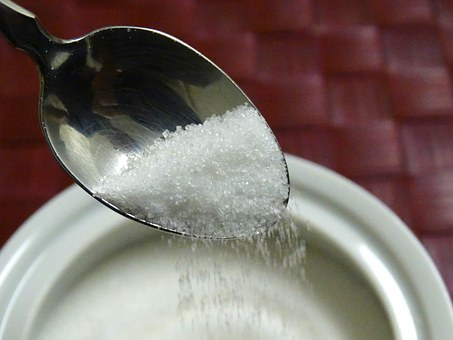Obesity and Diabetes Caused By Food Sweetener Fructose
© HealthyMuslim. See Terms and Conditions

Fructose, a sweetener usually derived from corn, can cause dangerous growths of fat cells around vital organs and is able to trigger the early stages of diabetes and heart disease.
Although this sweetener is found naturally in small quantities in fruit, it is increasingly been used as a substitute for more expensive types of sugar in yoghurts, cakes, salad dressing, cereals and even some fruit drinks.
It is also believed that fructose could be a factor in the emergence of diabetes among children.
Study Details
Over 10 weeks, 16 volunteers on a controlled diet including high levels of fructose produced new fat cells around their heart, liver and other digestive organs. They also showed signs of food-processing abnormalities linked to diabetes and heart disease. Another group of volunteers on the same diet, but with glucose sugar replacing fructose, did not have these problems.
The lead author said:
"This is the first evidence we have that fructose increases diabetes and heart disease independently from causing simple weight gain,"
"We didn't see any of these changes in the people eating glucose."
Research paper details:
Stanhope KL, Schwarz JM, Keim NL, et al. Consuming fructose-sweetened, not glucose-sweetened, beverages increases visceral adiposity and lipids and decreases insulin sensitivity in overweight/obese humans. J Clin Invest. 2009 May 1; 119(5): 1322-1334.
Fructose bypasses the digestive process that breaks down other forms of sugar. It arrives intact in the liver where it causes a variety of abnormal reactions, including the disruption of mechanisms that instruct the body whether to burn or store fat.
Why fructose is So Detrimental to Health
Natural fructose represents 5%-10% of the weight of any fruit. A synthesized version which uses a combination of fructose and glucose syrup from maize is increasingly being used in processed foods as a cheaper ingredient and six times sweeter than cane sugar. It is called high-fructose corn syrup, or glucose-fructose syrup, and to make matters worse, all of the fiber has been removed from these processed foods, so there is essentially no nutritive value at all.
In vegetables and fruits, it's mixed in with fiber, vitamins, minerals, enzymes, and beneficial phytonutrients, all which moderate any negative metabolic effects.
Fructose has been found to be a major contributor to insulin resistance and obesity, as well as elevated blood pressure, cardiovascular disease, liver disease, cancer, arthritis and more.
There are two reasons fructose is so damaging:
Firstly, the body metabolizes fructose in a much different way than glucose. The entire burden of metabolizing fructose falls on the liver. In simple terms, when too much fructose enters the liver, the liver can't process it all fast enough for the body to use as sugar. Instead, it starts making fats from the fructose and sending them off into the bloodstream as triglycerides. Triglycerides are potential risk factors for obesity, heart disease and type-2 diabetes.
Secondly, fructose is being consumed in enormous quantities, which has made the negative effects much more profound. All fructose works the same in the body, whether it comes from corn syrup, cane sugar, beet sugar, strawberries, onions, or tomatoes. Only the amounts are different.
The bottom line is that fructose leads to increased weight gain, insulin resistance and metabolic syndrome - not to mention the long list of chronic diseases that directly result. So try to avoid fructose and other artificial sweeteners as much as possible.
Link to this article: Show: HTML Link • Full Link • Short Link
Share or Bookmark this page: You will need to have an account with the selected service in order to post links or bookmark this page.





|
Related Articles:
- Five Foods That Aid Weight Loss
- Why Diets Don't Work and Tips to Lose Weight
- Freshly Squeezed Juice Lowers the Risk of Obesity
- New Research on the Powerful Benefits of Garlic
- Being Overweight Raises the Risk of Cancer
- High Fructrose Corn Syrup and Diabetes
- Food Combining for Optimum Nutrition: The Basics
- Almonds Can Control Weight
- Chamomile Tea May Ease Diabetic Symptoms
- Artificial Sweetener Aspartame Is Carcinogenic
You must be registered and logged in to comment.
Most Popular
Latest Articles
Popular Subjects
Health, fitness and longevity
Based upon the principles of health
in the Qur'an and Prophetic Traditions.
HealthyMuslim.Com
There are two bounties in which
most people lose out: good health
and free time. Al-Bukhari.























